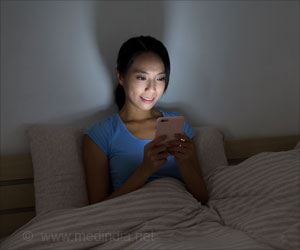Parents who take precautionary steps like removing digital media from the bedroom and encouraging a calming bedtime routine can improve sleep in children and teens.

TOP INSIGHT
Use of electronic gadgets before bedtime leads to insufficient sleep. Therefore, it is necessary to remove these devices from the bedroom.
The recommendations, for clinicians and parents, are:
1. Make sleep a priority by talking with family members about the importance of sleep and healthy sleep expectations;
2. Encourage a bedtime routine that includes calming activities and avoids electronic media use;
3. Encourage families to remove all electronic devices from their child or teen's bedroom, including TVs, video games, computers, tablets and cell phones;
5. If a child or adolescent is exhibiting mood or behavioral problems, consider insufficient sleep as a contributing factor.
The reasons behind this adverse association likely include time spent on screens replacing time spent sleeping; mental stimulation from media content; and the effects of light interrupting sleep cycles, according to the researchers.
Buxton and other researchers are further exploring this topic. They are working to understand if media use affects the timing and duration of sleep among children and adolescents; the role of parenting and family practices; the links between screen time and sleep quality and tiredness; and the influence of light on circadian physiology and sleep health among children and adolescents.
Source-Eurekalert
 MEDINDIA
MEDINDIA




 Email
Email










